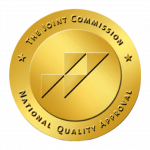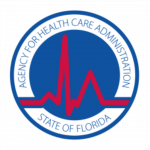Alcohol withdrawal is a phenomenon that occurs when someone stops drinking alcohol suddenly. Symptoms can be mild to severe, depending on the sudden decrease in alcohol at high concentration levels. Medicines, vitamins, and other treatments can be used to treat alcohol withdrawal. These treatments can relieve symptoms such as agitation , hallucinations, or seizures (convulsions).
Alcohol withdrawal can be a deadly condition if not managed properly. Here is what you need to know about the stages of alcohol withdrawal.
1st Stage
Alcohol withdrawal can look very different from person to person. In the first stage of alcohol withdrawal, people will often experience anxiety, agitation, and insomnia. They may also show a lack of concentration, irritability, and depression.
The first stage of alcohol withdrawal typically starts 12-24 hours after your last drink. This may include symptoms such as nausea, tremors, anxiety, difficulty sleeping (insomnia), intensified hangover symptoms, and agitation.
Things to watch out for in the first stage are loss of coordination in the hands or feet. This applies for those who have been drinking heavily. The reduced inhibition can lead into more risky activities like driving a car when they may have avoided this after consuming alcohol. Seek professional medical assistance if any new symptoms arise after one stops drinking. These symptoms may develop into seizures or delirium tremens which can be fatal without medical intervention.
2nd Stage
The second stage, also known as delirium tremens, typically starts coming on 48-72 hours after your last drink. This stage may include extreme tremors, hallucinating, or delusions (psychosis) that are often associated with alcohol psychosis or other medical issues.
Delirium tremens happen when your blood alcohol level reaches dangerous levels. The symptoms may include overwhelming anxiety, sweating, heart palpitations, shaking, and hallucinations. If you or someone you know is suffering from symptoms of alcoholism, while dealing with alcohol addiction, contact a treatment center for help.
3rd Stage
The third-stage of alcohol withdrawal has some really serious problems. Like the first and second stages, one may experience anxiety and paranoia, but psychosis is much more likely. In this stage, the individual may also experience suicidal thoughts and hallucinations.
The third stage is the most dangerous stage and may include seizures, chest pains, delirium tremens (DTs), and death. If you or someone you know has alcohol withdrawal symptoms that are progressing to a third stage, it’s important to seek immediate medical assistance. Alcohol detox should then be initiated as soon as possible so that your symptoms don’t get out of control.
What Should You Do
The ability to withdraw safely from alcohol depends on the length of your alcohol exposure and your overall mental stability. You can withdraw from alcohol safely when you are physically able to do so and with the right help. Having pre-existing medical conditions may force you to withdrawal, such as cardiac arrest or neurological issues. However, before deciding to begin your detox, consult with experienced professionals and medically trained professionals to assist you.
It is a good idea to call a detox center to find out if they have the proper medical equipment and staff to accommodate any specific needs you may have before trying to withdraw from alcohol on your own. Most detox centers will help determine which treatment is right for you to assist with your withdraw in the safest and most effective way.
Knowing the stages of withdrawal can help you plan ahead and make sure that you are able to remain safe during the withdrawal process no matter what stage of withdrawal you are in. FDA approved medications can help with the severity of the symptoms during alcohol withdrawal. Medications like anti-seizure drugs, anti-nausea drugs, and anti-anxiety drugs may be prescribed to you by your healthcare provider. These medications can help make the withdrawal process smoother for you and more comfortable. Do the research and familiarize yourself with the Stages of Alcohol Withdrawal and what you can do about it!














